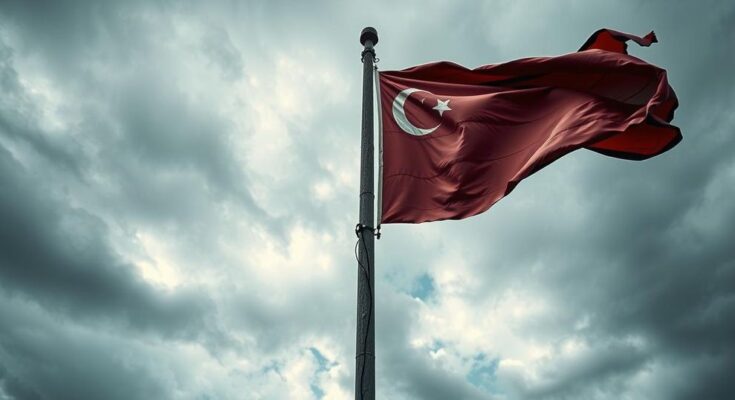On January 26, displaced Lebanese returned to their devastated homes in the south, marking the deadline for Israeli troop withdrawal. Hezbollah’s military and political dominance faces erosion following significant losses in the recent conflict with Israel. New leadership in Lebanon calls for essential reforms that challenge Hezbollah’s status. As public dissatisfaction grows, the group’s future remains uncertain, potentially influenced by Iran’s strategic interests.
On January 26, thousands of displaced Lebanese attempted to return to their homes in southern Lebanon, only to discover their neighborhoods reduced to rubble. This event coincided with the deadline for the withdrawal of Israeli troops per a ceasefire brokered by the US and France, demanding Hezbollah to disarm. While violence ensued, Hezbollah sought to portray strength amid the destruction, although its future remains uncertain as Lebanon’s political landscape shifts.
Hezbollah, a prominent Shia Muslim militia backed by Iran, has historically wielded considerable power in Lebanon. The group has maintained a formidable military presence, effectively paralyzing the state through its political influence. However, this dynamic faced challenges following the latest conflict with Israel, which began in October 2023, disrupting Hezbollah’s traditional dominance after substantial losses and a devastating air campaign.
The cessation of hostilities resulted in a significant change in Lebanon, culminating in the election of Joseph Aoun as president and the formation of a new government directed by Prime Minister Nawaf Salam, seemingly unaligned with Hezbollah. The group now faces criticism from constituencies previously supportive of it, as many see the devastation of their neighborhoods and may begin to blame Hezbollah for the hardship.
Despite Hezbollah’s assertion of victory, the reality for its supporters is stark; estimates suggest damage exceeding $3 billion from the recent conflict. As citizens continue living in temporary shelters months after hostilities ceased, a wave of discontent can be sensed brewing against the leadership. Experts note that Hezbollah is attempting to manage these perceptions proactively.
There exists an underlying tension in Lebanon regarding Hezbollah’s military capabilities, with implications for societal stability. The group’s history of violent reprisals creates caution among opposition voices who fear repercussions. Nevertheless, Lebanon’s new leadership emphasizes reforms essential for recovery and stability, including a pledge to reinforce the Lebanese army as the sole military power, implicitly targeting Hezbollah’s arsenal.
Key decisions concerning Hezbollah’s future may ultimately rest not in Lebanon, but in Iran, which has financially supported the group as part of its regional strategy against Israel. Since the recent conflict diminished Hezbollah’s military capabilities, rebuilding its strength appears challenging. Experts suggest that the matter of disarmament might surface in broader regional negotiations, especially given Iran’s shifting approach toward Western diplomacy.
Hezbollah, formed in the 1980s in response to the Israeli occupation of southern Lebanon, evolved into a significant political and military player in the region, backed by Iran. The group’s integration into Lebanese politics has rendered it a dominant force, often paralyzing governmental processes due to its influential parliamentary presence. However, the shifting geopolitical landscape following continuous conflicts with Israel, particularly the most recent one beginning in October 2023, has raised questions about Hezbollah’s long-term viability, especially in relation to disarmament and its role within Lebanon’s political framework.
In summary, Hezbollah faces unprecedented challenges as it navigates a transformed political environment in Lebanon and substantial losses from recent conflicts. Its ability to project strength is dwindling amid growing dissatisfaction among its base and external pressures for reform. The future of Hezbollah may hinge on Iran’s strategic decisions, with disarmament becoming a conceivable aspect of broader negotiations. Ultimately, Lebanon is yearning for stability and normalcy in a landscape rife with upheaval and complexity.
Original Source: www.bbc.co.uk




